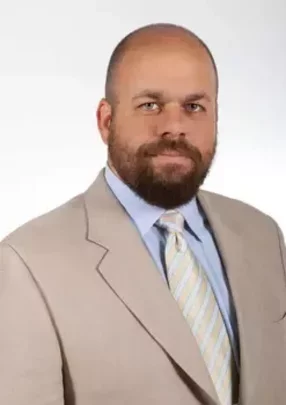
Pavlos S. Tamvakis
CPO
Pavlos S. Tamvakis, CPO at Mediterraneo Hospital currently has 15 years of experience in the healthcare sector. He began his career in the pharmaceutical industry conducting imports and exports for pharmaceutical drugs in the European Union (EU). After a few years in the industry, Tamvakis moved into the medical device sector, where he was introduced to Mediterraneo Hospital. “I came to provide Mediterraneo Hospital with some medical devices, and they offered me the chance to set up a purchasing department for the hospital, which I have now been running for the past eight years,” says Tamvakis.
When it comes to the essential traits of an effective leader, Tamvakis believes that “during these difficult times that we are going through due to the pandemic, a good leader needs to know what is going on. First and foremost we constantly get new information regarding the virus and how it develops and affects people. As a result this affects our jobs and being the first line of defence, people need someone that is positive and knows how to handle a difficult situation. During this time, I believe that our leadership has been quite effective. We have more than 400 people working here and none of us have got the virus. So I believe that all the protocols that have been set up from our administration have been successful. This is what effective leadership is, to set up and implement efficient guidelines that protect its employees.”
The impact of COVID-19
Reflecting on the impact of COVID-19 so far, Tamvakis explains that it has changed a lot of the hospital's operations. “First of all the way we behave on a day to day basis, a lot of work is put into covering the needs concerning personal protective equipment (PPE). Due to many suppliers having manufacturing issues as well as the increase in demand, we have had to rethink our way of ordering materials, to minimise the challenges of shortages.”
Tamvakis highlights that this shortage is not just in Athens, but all over the world. “The needs escalated quickly, for example we bought 110,000 masks last year. This year we have already bought more than 150,000 masks, and I believe that by the end of the year our total will have doubled last year’s. As a result of this increase in demand, the cost of procuring these products has also increased. We used to buy masks at two cents, at one point they were being sold at 90 cents, now we’re buying at 10 cents. As a result at the peak times, masks were five times more expensive to buy and the demand was two times more in quantity, which is a huge expense for something so basic.” Tamvakis believes that this was - and still is - the main challenge for the hospital.



